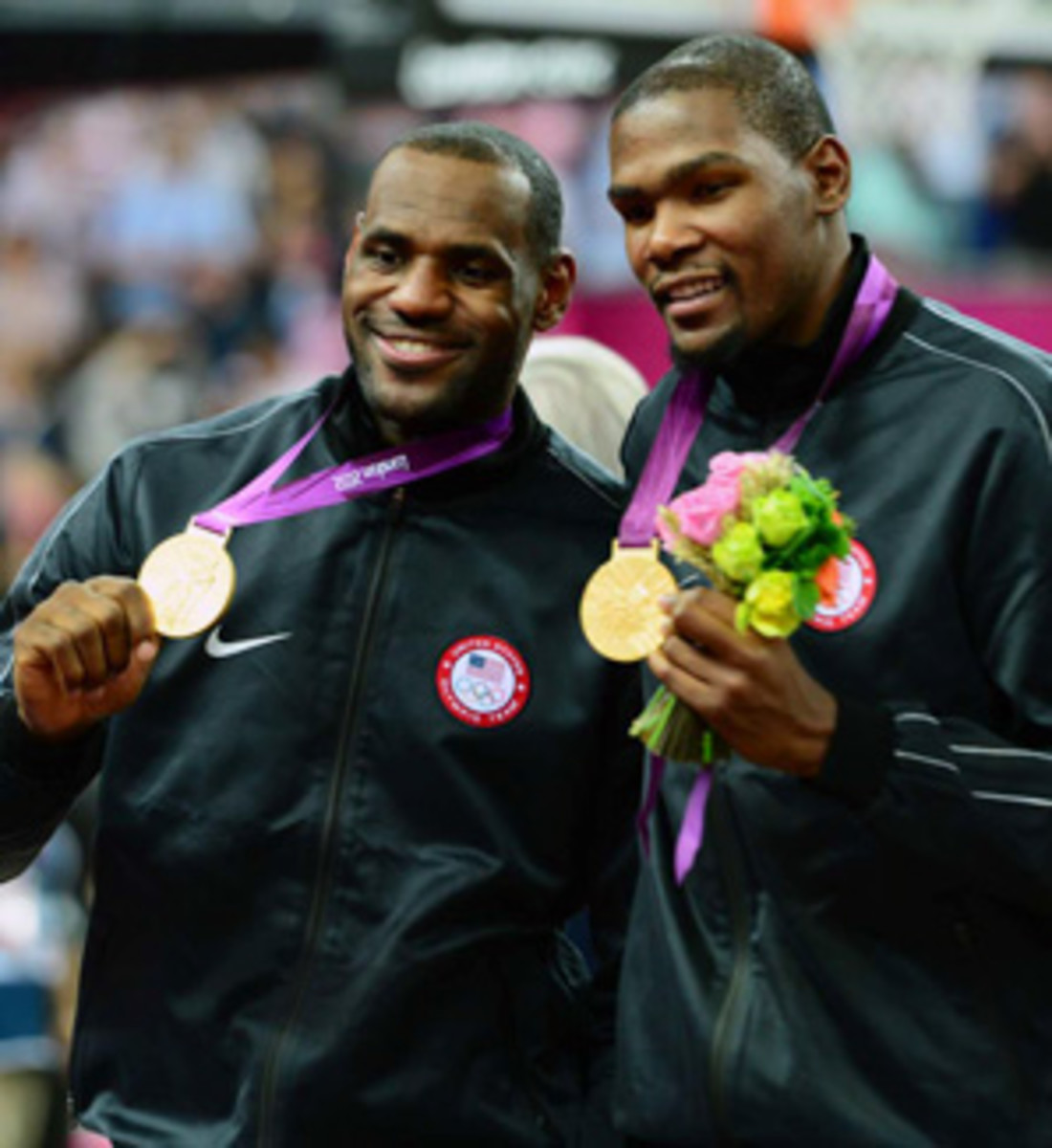U.S. doesn't win anything for medal count, but benefits are apparent
LONDON -- Though iconic Olympic memories are often measured in mettle, the more immediate barometer for international sporting preeminence is the medal count, won by the United States at the London Games with 104 total medals, including 46 golds.
"We had very high expectations coming into the Games and I think our expectations have been exceeded," said Scott Blackmun, the United States Olympic Committee's CEO. "Our objective was to get as many athletes on the podium as we can and, with team sports, we are going to get 200 athletes up there. The athletes have had a great time and made all of America proud. We are very excited to have been here and it really couldn't have been a more positive experience for us in any way."
There is no extra prize or diploma for the honor of finishing with the most medals, but its practical applications go beyond bragging rights. Though athletes don't train for national competitions with a notch on the medal count as a priority, everyone from sponsors to potential bid city members to rights holders want to associate themselves with perceived winners. When Blackmun and USOC Chairman Larry Probst spoke to reporters Saturday, the impressive numbers seemed to puff out of their chests, even as they were paying congratulations to the London organizing chief Seb Coe on a fine Games. "The only thing Seb got slightly wrong," Probst said, "was that he predicted we would come behind China in the medal count. I told him in April we were going to work very hard to prove him wrong so I'm very happy about that ...
"The American public has high expectations for our Olympic team. There was a lot of opinion about where we would finish as a team. Some predicted second and some even predicted third. We are extremely proud of what our athletes have accomplished. We like to come in first and there is nothing wrong with that."
U.S. athletes in some sports fared better than others. The U.S. had strong contributions, as expected, in track, swimming and gymnastics and saw both basketball teams bring home titles. Kayla Harrison became the first U.S. judoka ever to win an Olympic gold medal.
"The Olympic motto is faster, higher, stronger," Harrison said, "and I think every American came here to do that. I came here to perform at my very, very best and make America proud as a result."
Still, the men's boxing team came home empty fisted for the first time at an Olympics. Long gone are the days when pundits could debate how subsequent teams compared to other outstanding U.S. squads in 1976 or 1984. "We have a strong and rich history in boxing and this is the first time that we haven't had any men on the podium," Probst said. "We have to fix that and we are going to take a hard look at why we are where we are and make some changes. We are disappointed in boxing because we want to do better, particularly in men's boxing."
Boxing is the exception in a season of success. After New York's failed attempt to land these Olympics and Chicago's whiff at the 2016 Games, the USOC now appears to have its house in much better order. A revenue-sharing impasse with the IOC has cleared up, there is finally stability at the top positions within the organization and a successful performance in London makes it more likely that sponsors and city leaders would get behind the notion of trying to host an Olympics in either 2024 -- San Francisco and Dallas have expressed interest in a summer bid -- or 2026, when Denver could be a possible winter candidate.
Even so, a U.S. city shouldn't expect the type of medal mark-up that the Brits enjoyed in London, jumping from 47 medals in Beijing to 65 in front of their home crowds. Mo Farah won double gold in distance running, Ben Ainslie won his fourth gold in sailing. Track cyclist Chris Hoy became the first from the U.K. to win six golds in a career. "It's even greater that these Games were at home and really a breakthrough for Team GB," he said. Success even rubbed off on the royals as Prince William and Kate were up doing the wave at one of the events they attended.
It's a sharp contrast to the sporting view in Australia, where John Coates, the Olympic committee president, blamed his country's poor showing on both poor government funding and lack of good physical education programs in schools. For some, the medal count is a vehicle for social change; for others, it's a means to economic benefit. In both cases, it's a source of national esteem.






